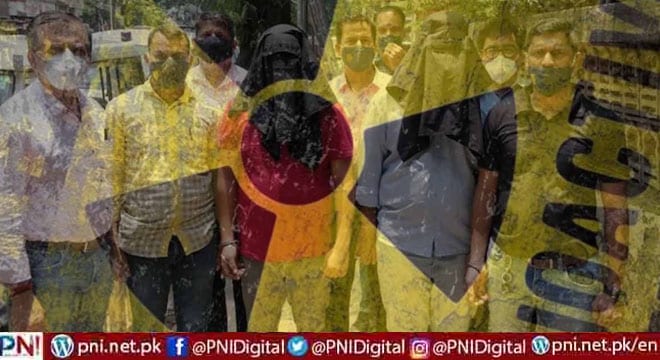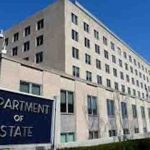ISLAMABAD, Mar 11 (APP): The recurrent incidents of uranium thefts and smuggling in India have highlighted the alarming poor security arrangement of the Indian nuclear programme.
The theft of nuclear material over the last two decades in India posed a serious threat of nuclear terrorism, necessitating action by the global powers to address the poor safety standards in the country, defence analysts said on Saturday.
A number of uranium/radioactive substance theft incidents in the recent past occurred in India, which indicated the presence of a black market for nuclear materials inside India.
In 2021, 6.4kg of uranium in Jharkhand and likewise 7kg of uranium in Maharashtra were confiscated by the Indian authorities.
On 26 August 2021, 250kg of uranium variant – a highly radioactive and toxic substance – worth $573 million was confiscated in Kolkata and two persons from Indian strategic organizations were arrested.
In December 2006, a container packed with radioactive material was stolen from a fortified research facility in the town of Rajrappa (Ramgarh district).
According to experts, such incidents raised serious questions over the safety and security of huge stockpiles of fissile material within India.
In 2008, police arrested five people in the north-eastern Indian state of Meghalaya on charges of smuggling uranium ore. Similarly, in 2009, Mumbai Crime Branch arrested three people for illegal possession of 5kg of depleted uranium.
On 9 March 2022, India accidentally fired a BrahMos missile originating from Sirsa, Haryana that crashed into Mian Channu, Khanewal district, Punjab, Pakistan.
According to a report of the Arms Control Association, Indian authorities had arrested individuals on charges of illicit trading in uranium.
“The incidents have raised concerns about what appears to be a growing nuclear security risk in the region,” it cautioned.
The Centre for Strategic and Contemporary Research, in a report, said that the recurring incidents of security lapses, including the theft of enrichment material, clearly indicated that India’s security mechanism and nuclear doctrine have serious loopholes, which should be a concern for the international community.
“Moreover, if these lapses persist, they can continue to pose a devastating nuclear threat to the entire region. This enrichment material can always land in the hands of illicit entities or non-state actors, particularly when India is already facing numerous insurgencies in its various areas,” it added.
The Indian Environmental Portal said that a review of ‘unusual occurrences’ contained within the Indian Atomic Energy Regulatory Board’s (AERB) annual reports revealed there had been 16 cases of loss, theft or misplacement of radioactive sources since 20001 in which radioactive material found its way into the environment.
“These are not isolated incidents as India’s history is replete with such evidence of possible involvement of national gangs in creating a black market for uranium trade,” a number of defence analysts opined.
Such incidents posed risks of nuclear exchange due to miscalculations between nuclear-armed India and Pakistan, the experts added.
Such incidents had raised concerns about India, which emerged as a potential hotspot in the illegal trade of nuclear technology and materials vital for a malicious nuclear supply chain for state and non-state actors.
Given its history, India is considered one of the most vulnerable states in the world with respect to nuclear safety and security.
“As a state with dozens of local insurgencies and movements, it is a matter of time when a non-state actor succeeds in acquiring sufficient fissile material that can be useful in harming others,” they further commented.
In defiance of international obligations, they said India was channelling its civil nuclear program/technologies for military purposes.
“Therefore, the international community must be careful in its nuclear-related dealings vis-à-vis India as it would make the region and world more dangerous,” they stressed.
On the other hand, they maintained Pakistan was committed to the objective of enhancing nuclear security. It has been fully engaged with the international community to promote nuclear safety and security.
“As a Nuclear capable state, Pakistan takes its nuclear security responsibility very seriously. Nuclear safety and security in Pakistan are based on multiple layers and defence-in-depth concepts. All of Pakistan’s export control laws are at par with international standards and the standards set by the NSG and other export control regimes,” they added.
Follow the PNI Facebook page for the latest news and updates.









